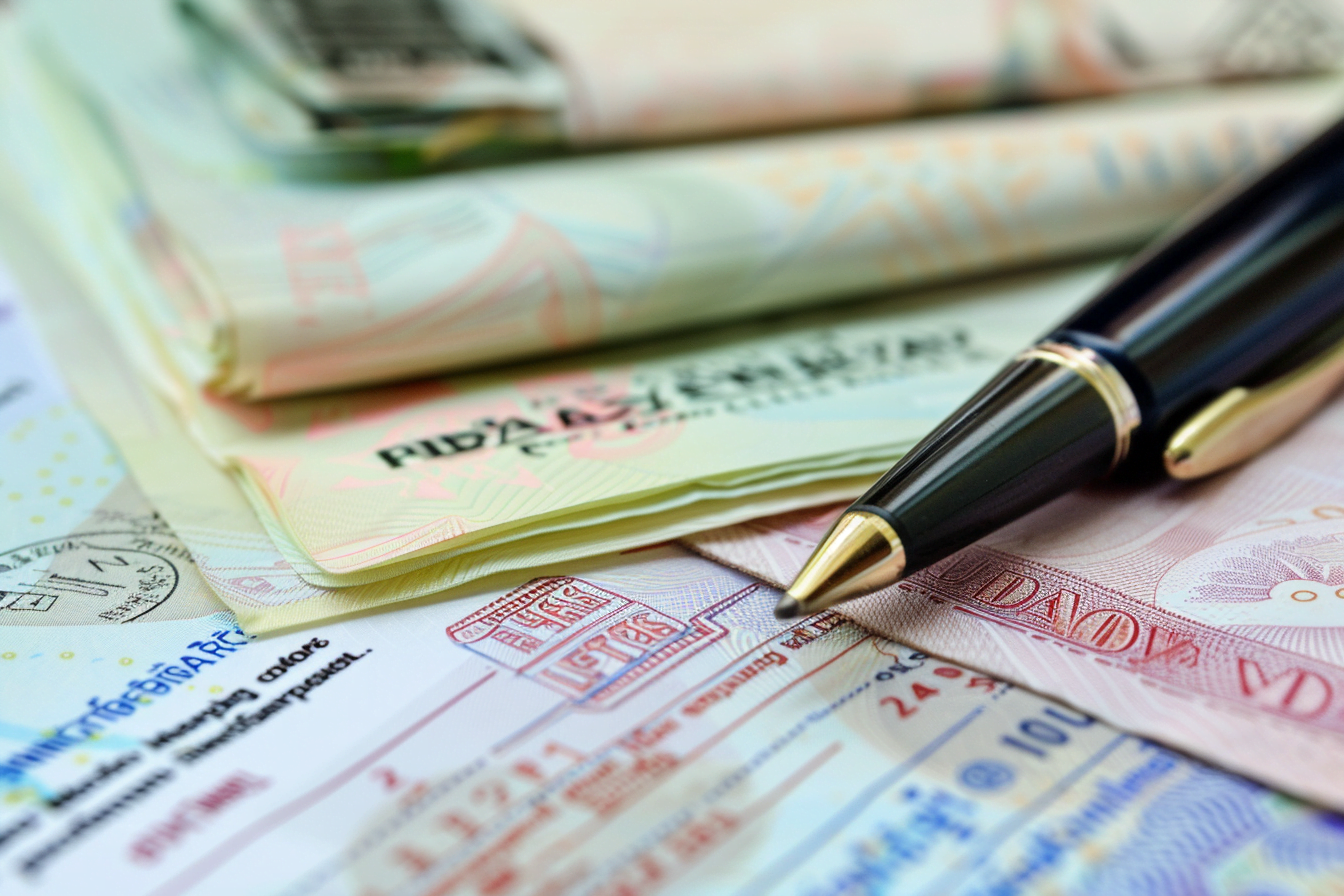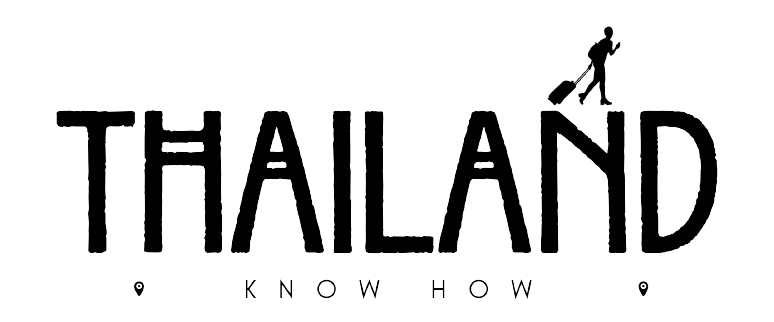Discover how to seamlessly tap into professional networking in Thailand to boost your career and expand your business opportunities.
Amidst the lush landscapes and bustling cities, over 3 million foreigners choose to work in Thailand each year, contributing significantly to the nation’s economic fabric. However, before tapping into this vibrant employment market, one fundamental requirement stands between ambition and opportunity: the mandatory acquisition of a Thailand employment visa and a Thai work permit. These vital documents ensure your professional journey in the Kingdom complies with the regulations outlined by the Thai Ministry of Labour. Whether you’re an emerging entrepreneur, a global corporate transferee, or a digital nomad, the nuances of Thailand Non-Immigrant Visas are your pivotal first steps toward a legal and prosperous working life in this Southeast Asian hub.
The quest begins with navigating the multi-tiered visa process, which teases apart the essentials of obtaining legal permission to work in Thailand. At first glance, the procedures may seem labyrinthine, but with the right guidance, securing your Thai work permit and Non-Immigrant Visa Category “B” becomes a clear-cut pathway to your professional aspirations within Thai borders. Here’s a glimpse into what foreign professionals need to know to ensure their journey of working and thriving in Thailand is smooth sailing from visa application to employment fruition.
Key Takeaways
- Securing a legal employment status in Thailand requires a Thailand employment visa and a Thai work permit.
- Initial steps include applying for a Non-Immigrant Visa Category “B” at a Thai Embassy or Consulate.
- Following the visa, a work permit application at Thailand’s Department of Employment is essential.
- An Extension of Stay Permit from the Thai Immigration Bureau seals the deal for prolonged residence.
- Understanding the distinction between a work visa and a work permit is crucial to ensure compliance with Thai labor laws.
- The approval Letter from the Thai Ministry of Labour is among the key documents required for visa eligibility.
Understanding Thailand’s Work Visa and Work Permit Dynamics
Embarking on the journey to work in Thailand requires a clear understanding of the distinct legal authorizations needed – the Non-Immigrant Visa B Category for employment and the Thai Work Permit. Despite some misunderstanding, it’s important to recognize that obtaining a Thai work permit is an essential complement to the work visa. Let’s delve into the specifics that distinguish the two, the eligibility criteria for the work visa, and the essential steps to apply for a work visa.
Distinction Between Thai Work Visa and Work Permit
In Thailand, the work visa grants entry into the country with the intent to work, whereas the work permit is the official document that authorizes a foreign national to be employed in Thailand. A work permit is issued by the Thailand Ministry of Labour and is a requirement once you are in the country with your visa, to begin or continue work legally.
Eligibility Criteria for a Thailand Work Visa
The eligibility for a Thailand Work Visa includes having a valid passport, completing a detailed visa application form, supplying a conforming passport-sized photograph, demonstrating proof of financial sufficiency, securing a clearance from any past criminal convictions, and receiving an initial nod of approval from the Thai Ministry of Labour. Fulfilling these prerequisites is your first step toward successfully applying to work in this dynamic Southeast Asian nation.
Application Process for a Non-Immigrant Work Visa
The process to apply for a work visa involves multiple stages, starting with effective communication with the nearest Thai embassy or consulate to understand precise Thailand work permit requirements. Once you’re aware of all necessary documentation, the application submission can proceed either via mail or in person depending on the embassy’s regulations. After careful scrutiny and processing of your application, you’ll be set to step onto Thai soil and progress towards obtaining a Thai work permit.
| Requirement | Work Visa | Work Permit |
|---|---|---|
| Issuing Authority | Thai Embassy/Consulate | Ministry of Labour, Thailand |
| Purpose | Entry into Thailand for employment | Legal authorization to work |
| Primary Documents | Valid passport, visa application form, recent photo, financial proof, police clearance | Passport with visa, employment evidence, employer’s company documents |
| Processing Location | Outside Thailand | Within Thailand |
Documentary Requirements: Preparing Your Application
Embarking on the journey to secure a Thailand work visa encompasses a precise attention to documentary detail. The following guide is tailored to elucidate the various steps and requisite paperwork catered to bolster the application for Thailand work permit and work visa processes. From essential forms to the meticulous task of document legalization, our aim is to equip applicants with the knowledge for a successful submission.
Essential Documents for Thailand Work Visa Application
Meeting the Thailand work visa requirements constitutes gathering a set of stipulated documents to ensure a smooth Thai work visa application. A checklist of key elements includes:
- A current passport with at least six months’ validity.
- A completed and signed visa application form.
- Recent passport-sized photograph adhering to specific dimensions.
- Evidence of sufficient financial means for the duration of stay.
- A criminal background check clearance, commonly referred to as a police certificate.

Collating Documents for Thai Work Permit Submission
The application for a Thailand work permit necessitates a separate dossier, requiring additional documentation from both the employee and the employer. The primary documents for Thai Work Permit assembly include:
- The applicant’s passport with the appropriate Thailand work visa stamp.
- Educational and professional qualifications evidence.
- An employment agreement outlining the terms, conditions, and scope of work.
- A lease, rental agreement, or proof of residence to verify local accommodation.
- Corporate documents from the employing entity such as company registration, list of shareholders, and company profile.
Legalization and Translation of Foreign Documents
Any document of foreign origin must undergo a process of legalization to be deemed valid within the Kingdom of Thailand. This ensures that the document bears genuine signatures and stamps, conforming to Thai legal standards. The intricacies of document legalization encompass:
- Authentication of signatures on documents by a recognized authority in the country of origin.
- Endorsement by the Thai embassy or consulate in said origin country, finalizing its legitimacy.
- Translation into Thai of all pertinent documents, required to be precise and officially certified.
All submitted papers must unequivocally reflect the applicant’s credibility and employment legality, especially in regards to the document legalization procedures—crucial for the Thai government’s vetting process.
Steps to Securing Your Thailand Work Permit
Securing a Thailand Work Permit is a crucial step for employment in Thailand and entails a series of methodical steps to ensure adherence to the guidelines set by the Ministry of Labour. Below is a simplified guide to facilitate the understanding of steps to secure a work permit in Thailand, aiming to streamline your experience during this process.
- Determine Eligibility: Ensure that the company you will be working for meets Thailand’s legal requirements such as registered capital and tax compliance.
- Acquire Non-Immigrant Visa: Before you can apply for a work permit, secure a Non-Immigrant Visa category “B” for business and work purposes.
- Compile Necessary Documents: Gather all the personal and employer documents required by the Thai Ministry of Labour.
- Submit Application: Present the complete application to the Ministry of Labour. Physical submission at the office is standard practice.
- Payment of Fees: Pay the government prescribed fee which varies according to the duration of your work permit.
- Attend to Processing: Allow for the specified processing time which can roughly take up to seven business days.
- Collect Work Permit: Upon approval, collect your work permit in person. It’s a legal requirement to keep it with you during all working hours.
In line with these steps, let’s delve into the specifics of the application procedure to be better prepared when applying for your work permit.
| Step | Action Item | Details to Note |
|---|---|---|
| 1 | Confirm Eligibility | Company must adhere to Thai investment, employment, and tax laws relevant to foreign labor. |
| 2 | Obtain Visa | Securing the appropriate visa is a precursor to work permit application. |
| 3 | Prepare Documentation | Includes personal identification, academic certifications, job offer details, passport, etc. |
| 4 | Application Submission | Engage with the Ministry of Labour for submission guidelines and ensure accuracy of forms. |
| 5 | Fee Payment | Fees are structured based on permit validity, from three months up to one year. |
| 6 | Monitor Processing | Typically takes one week but can vary based on documentation and ministry workload. |
| 7 | Pick Up Permit | Must be retrieved personally at the designated Ministry of Labour office. |
Remember, staying informed and prepared will greatly expedite your journey to obtaining your Thailand Work Permit and ensuring legal employment in Thailand.

Extending Your Stay: Visa and Work Permit Renewal Procedures
Living and working in Thailand is an enriching experience, but it requires vigilance regarding the legalities of your stay. Extending your stay in Thailand is not only about prolonging your professional journey but also about staying compliant with the country’s immigration laws. As your current work permit and visa draw closer to their expiry dates, understanding the visa extension process becomes pivotal.
Mandatory Check-ins with Thai Immigration Bureau
Ensuring your legal stay in Thailand entails regular interactions with the Thai Immigration Bureau. The government mandates that foreign nationals perform 90-day check-ins to keep their immigration status current. This routine is not just a formality but a crucial step to maintaining your ability to live and work in the country. The Thai authorities are meticulous, and adhering to this schedule is a testament to your commitment to abide by their regulations.
Timeframe for Work Permit and Visa Extensions
The cycle of work permit renewal in Thailand coincides with the timeframe of your visa. Typically, you should begin the process of extending your visa and work permit well before expiration, ideally within 90 days of your arrival or the preceding extension. Worth noting is the annual cadence of reapplication, harmonizing with the duration of most work contracts. Stay attuned to these timelines to ensure uninterrupted employment and residency. After maintaining a three-year clean slate with the renewal procedures, you may become eligible for a Permanent Residence Permit – a significant milestone for any expatriate in Thailand.
FAQ
What is the difference between a Thailand Employment Visa and a Work Permit?
A Thailand Employment Visa, categorized under Non-Immigrant Visas “B,” is issued by a Thai Embassy or Consulate and allows the holder to enter Thailand for employment purposes. A Work Permit, on the other hand, is a legal document issued by the Thai Ministry of Labour that grants the holder the right to work in Thailand. While the Employment Visa is for entry, the Work Permit is required to legally engage in employment within the country. Both are mandatory for legal work in Thailand.
Who is eligible for a Thailand Work Visa?
To be eligible for a Thailand Work Visa, you must have a valid passport, a completed visa application form, a recent passport-sized photograph, proof of sufficient finances, a police clearance certificate, and a Letter of Approval from the Thailand Ministry of Labour. These requirements may vary depending on the specific job or industry.
How do I apply for a Non-Immigrant Work Visa in Thailand?
The application process for a Non-Immigrant Work Visa involves contacting the Thai embassy or consulate in your area, preparing and submitting all required documents, including a passport, application form, photograph, proof of financial sufficiency, and a police clearance certificate. The application can be submitted in person or by post, after which you’ll wait for processing and approval before traveling to Thailand to continue with employment formalities.
What are the essential documents needed for a Thailand Work Visa application?
Essential documents for a Thailand Work Visa application include a valid passport, a completed visa application form, a recent passport-sized photograph, proof of financial sufficiency, a police clearance certificate, and additional documents required by the Thai Ministry of Labour based on the nature of your employment.
What documents need to be collated for a Thai Work Permit application?
For a Thai Work Permit application, both the employer and employee must provide extensive documentation, which typically includes the employee’s passport and valid Work Visa, academic certificates, employment agreement, proof of residence in Thailand, and the employer’s company certification and financial statements.
Are there requirements for the legalization and translation of foreign documents for a Thai Work Permit?
Yes, any foreign documents submitted for a Thai Work Permit must be legalized and accurately translated into Thai. The translation must be certified, and legalization is necessary to verify the authenticity of these documents. Employer-provided documents must also be stamped with the company seal and signed by the managing director.
What are the steps to securing a Thailand Work Permit?
Once in Thailand with a valid Non-Immigrant (Work) Visa, you can apply for a Work Permit by providing personal and employer documents to the Ministry of Labour. The key steps involve gathering the necessary paperwork, meeting the set requirements for employment eligibility, submitting your application, and awaiting its approval, which usually takes about seven days. Afterward, the Work Permit must be kept with you during work hours.
How often must I check in with the Thai Immigration Bureau?
You are required to check in with the Thai Immigration Bureau every 90 days. This regular check-in is part of maintaining your legal immigration status in the country.
What is the timeframe for Work Permit and Visa extensions in Thailand?
Work Permit and Visa extensions in Thailand are typically granted for one-year periods, aligning with the duration of your employment contract. The Extension of Stay can usually be re-applied for annually after the first extension. Permanent residency can be considered after maintaining a visa and work permit continuously for three years, and you must also apply for a Re-Entry Permit if you plan to travel outside of Thailand.






Leave a reply